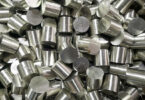Yesterday, Austria’s HotCity initiative announced a blockchain proof-of-concept (PoC) to crowdsource waste heat for use in other processes. Starting with Vienna and Graz, the Austrian government-funded project aims to make neighbourhoods energy efficient and develop ‘plus-energy districts’.
The idea of a plus-energy district is that they would generate energy as they consume electricity. Waste heat is an untapped source of renewable energy that could be used for drying foods, pasteurization of milk, desalination, or turning it back into electricity. Here, waste heat is used as an alternative source to reduce the consumption of traditional sources of energy and promote sustainability.
The PoC is focused on the collection of data to identify waste heat sources and then redirect it to the grid. Larger industries already have systems in place to utilize waste heat, but there are several smaller sources that need to be recorded. HotCity is leveraging gamification and blockchain to crowdsource heat data from households and other smaller sources on a voluntary basis.
The platform enables citizens to find and submit data from sources such as physical inspections, photos, or Google Maps. Based on the collected data, HotCity can map the quality and quantity of waste heat sources. For their participation, citizens will be given reward points, or tokens which will be recorded on the Ignis Child Chain, a part of the Ardor blockchain ecosystem. These tokens could potentially be used for other vouchers and services, details of which were not revealed by HotCity.
“Urban planning and spatial energy planning often suffer from the availability of good, validated, and up-to-date data sets. Gamification is an innovative and elegant approach, using the power and the creativity of the people, to counteract this,” said Ernst Gebetsroither-Geringer, project lead at AIT.
HotCity is led by the Austrian Institute of Technology (AIT), with other consortium participants including Picapipe, Digital Sunray and Graz Energy Agentur. Swiss firm Jelurida provides its Ardor blockchain, on which the testnet is being launched. HotCity has received a 310,000 Euro grant from the Austrian Federal Ministry for Climate Action, Environment, Energy, Mobility, Innovation, and Technology.
Last month, HotCity won the Austrian Blockchain Award from the Austrian Blockchain Center and the Austrian Chamber of Commerce. The PoC was to be launched at the time of the announcement, but has been postponed to October due to COVID-19.
Among other blockchain energy projects in the country, the Austrian Power Grid is working with the Energy Web Foundation for blockchain-based grid management. Australia’s Power Ledger is running a pilot in Graz, Austria, of its energy trading platform.






